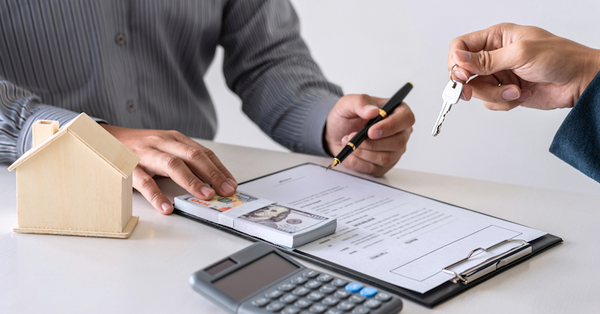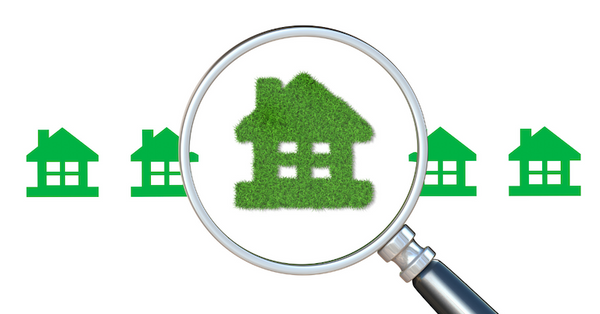The straightforward answer to this question is that wholesaling real estate is not illegal. But if you're getting started in wholesaling real estate, you have to understand the legal implications that come with it. You need to know what's right and what could land you in the wrong hands of the law. Every state has its rules and regulations regarding ethical real estate practices.
Every investor in wholesaling real estate needs to ensure transparency and ethics in doing this kind of business. So, if you're venturing into wholesaling, you need to understand the rules that protect the investors and the customers. If you follow the laws put in place, real estate wholesaling can be highly lucrative.
So, is wholesaling real estate a legal practice? This article sheds light on that question and all the legal implications on real estate wholesaling.
What Is Real Estate Wholesaling?
Wholesaling real estate entails an investor finding a property that's usually below the market value and enters a contractual purchase agreement with the seller. They'll then assign or buy the property to sell later at a higher price. The goal is to collect a fee at the end of the sales process. Wholesaling in real estate can take the form of an apartment, condo, raw land, mobile homes, or any commercial property.
Usually, property sellers agree to sell at a price lower than the market value to benefit from the quick sale. Investors typically look for sellers who need quick money to sort out financial problems such as health emergencies. At times, the wholesaler may buy a home with a lower value and improve it before reselling at a higher price.
To get started in real estate wholesaling, you don't need several years of experience in the market. Beginners can quickly get started and make money right away. However, experience is still necessary to succeed in any business.
Is Wholesaling Real Estate Legal?
Wholesaling real estate is legal as long as you follow the laws put in place by your state to protect all the parties involved. That is, you should never do anything that can harm you as an investor, the property seller, or the final buyer.
You must also know that the legality of wholesaling real estate varies from state to state. You must not make quick assumptions regarding your state before carrying out some due diligence. To avoid landing in trouble with the law, you must always read, understand, and comply with the disclosure agreements in real estate.
If you're not sure, it's better not to take chances but consult with an experienced real estate attorney to guide you through everything. Make sure you have clear answers to your doubts before you start taking any real estate deals.
What's Illegal about Real Estate Wholesaling?
It's true wholesaling is legal, but there are still some aspects that can land you in trouble. For instance, wholesaling is illegal if you bring your buyers in without entering a wholesale real estate contract with the sellers. You should not be selling the property on behalf of the seller. If that's what you're doing, it will be called brokering, which requires licensing.
In wholesaling, you're not selling properties for another person but yourself. That means you need to buy the property from its original seller and close the deal before you resell it. You must have ownership of the property before you can legally sell it.
Must you have a License to Wholesale Real Estate?
With so many laws and regulations regarding real estate wholesaling, you must be wondering if you need a license for it. The good news is, you don't necessarily need to get a license to practice real estate wholesaling. You can also start real estate wholesaling without having to be licensed as a real estate agent. All you need is to be the buyer or the seller in the transaction.
If you're a licensed real estate agent who's also a wholesaler, you must disclose everything to your customers. Most states require you to inform your position as a professional real estate agent before entering a contract with the seller or the buyer. If you're selling a contract, you must disclose to the buyer that you're not the property's current owner, although you hold the right to buy it and sell the contract.
If you're purchasing a property to resell, you're supposed to disclose to the buyer that you're not the actual owner on the records. You should disclose that you've only purchased an agreement and will close escrow soon.
Do You Need a Buyers List to Succeed in Wholesaling?
Some experts in real estate wholesaling say that you need a buyers list. Is this really necessary? The answer is no. You can still record an enormous success in real estate wholesaling without a buyer's list.
But again, building a buyer's list makes the life of a wholesaler easier. The buyer's list is the list of potential property buyers. They usually entail investors ready to buy the property, provided you get them exactly what they want. As a wholesaler, you should already know what the buyer in your list wants and only contact them if you get that.
There are still ways you can find great buyers without the buyer's list. Many great wholesalers started without one and still did so well. Once you already have wholesaling real estate contracts on your hands, you can go ahead and market the property to potential buyers.
How to Wholesale Houses Legally
Now that you know that wholesaling isn't illegal if you do it right, you also need to understand how to wholesale houses the right way. If you're getting started in the business or already in it, there are still some best practices that can help you succeed and protect you from trouble.
Be the Principal Buyer
One of the ways to wholesale without getting into trouble with the law is to position yourself as the principal buyer. You should present yourself to the property seller as the buyer. When finally reselling the property, introduce yourself to the buyer as the seller.
Have Valid Agreements
Make sure you have valid deals when selling real estate properties. You must have valid and binding purchase and sales agreements. Always make sure to conform to the requirements of your local real estate market. Don't forget to include the relevant agreement language as required by the local market.
Bottom Line
So, is wholesaling real estate legal? Yes, but only if you do it right. Before you start listing wholesale houses for sale, ensure you get familiar with your state laws. Understanding the laws and regulations will ensure you do your business efficiently without getting into compliance trouble.
SimpleShowing can help you get started and succeed in wholesaling real estate. Contact us today and let one of our experts help throughout the process.
Conclusion
Becoming a real estate wholesaler is not only a legitimate approach to real estate investing but also one that can yield significant returns. However, it's essential to remember that while wholesaling real estate doesn't require a real estate license in every jurisdiction, understanding the local and federal laws that govern this field is crucial. Every potential real estate investor should prioritize legal compliance to ensure the sustainability of their wholesaling business.
When conducted correctly, a wholesale deal can provide a high-profit margin for real estate investors, acting as a stepping stone into the world of real estate investment. Wholesaling offers an entry point that does not necessitate substantial upfront capital, making it accessible for those looking to break into the market. The success of the wholesaling business largely depends on the investor's skills in locating underpriced properties and then selling the contracts to end buyers for a profit.
So, while the legality of wholesaling can be a grey area in some locations, the fact remains that many real estate investors have found success in this field. As long as investors understand their local regulations, acquiring a real estate license if necessary, and operate ethically, wholesaling can indeed be a profitable and legal real estate investment strategy.




